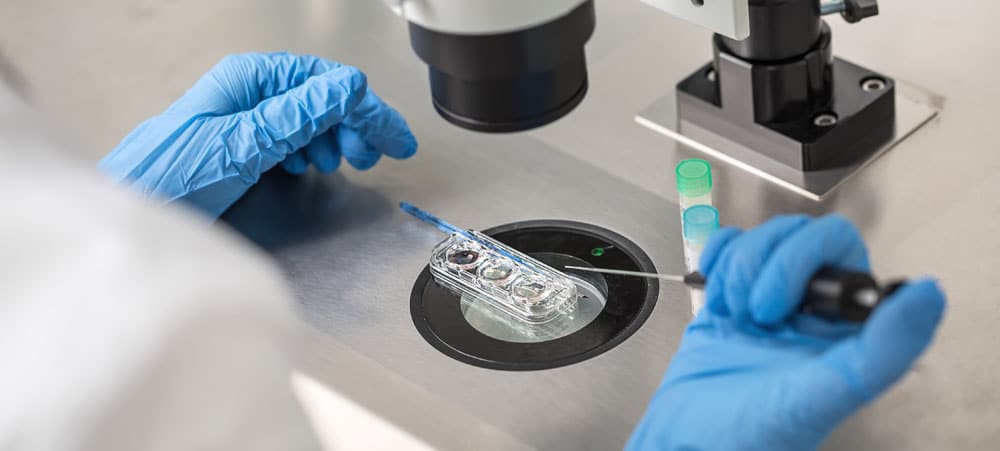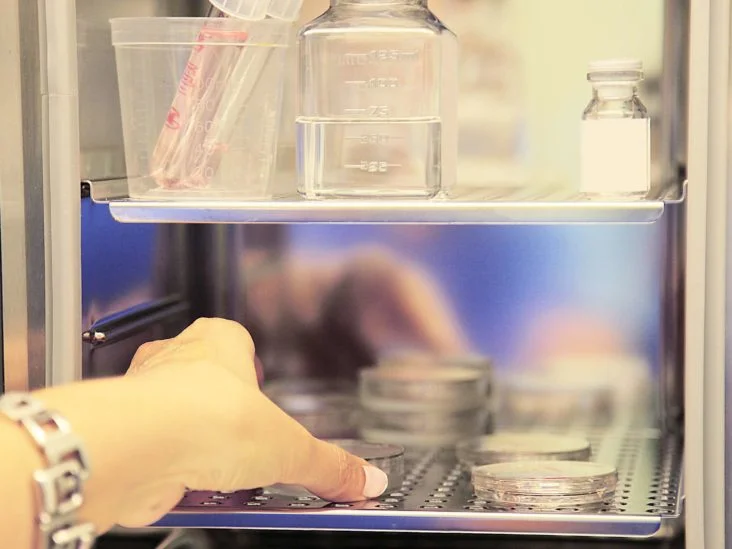Introduction
In recent years, egg freezing has gained popularity as a method for women to preserve their fertility and extend their reproductive options. This medical procedure involves the retrieval and freezing of a woman’s eggs for potential future use. While egg freezing offers a valuable option for women who wish to delay childbirth for various reasons, it’s essential to understand that age plays a critical role in the success and effectiveness of this procedure. In this comprehensive article, we will explore the reasons why age matters when it comes to egg freezing, the ideal age range for this procedure, and the various factors that influence its outcomes.

The Biological Clock: A Fundamental Concept
The concept of the biological clock is central to understanding why age matters in egg freezing. Women are born with a finite number of eggs, and this number steadily declines over time. As women age, the quality of their eggs also deteriorates, increasing the risk of genetic abnormalities and pregnancy complications. This natural decline in fertility is a critical factor that impacts the success of egg freezing.
Ovarian Reserve and Egg Quality
Ovarian reserve refers to the quantity and quality of a woman’s remaining eggs. A woman’s ovarian reserve is highest during her late teens and early twenties, gradually declining as she reaches her thirties and forties. The quantity of eggs declines, and the remaining eggs may have a higher chance of genetic abnormalities, making them less suitable for fertilization and pregnancy.
The Impact of Aging on Egg Quality
Egg quality is a crucial factor when it comes to achieving a successful pregnancy through in vitro fertilization (IVF). As women age, the quality of their eggs decreases due to various factors, including oxidative stress, DNA damage, and changes in cellular structures. These age-related changes can lead to a higher likelihood of miscarriage and genetic abnormalities in embryos created from older eggs.
The Ideal Age Range for Egg Freezing
The ideal age range for egg freezing is a subject of debate, but experts generally recommend that women consider this option before their fertility significantly declines. While there is no one-size-fits-all answer, here are some key considerations for determining the ideal age for egg freezing:

Early 30s: A Common Starting Point
Many women consider egg freezing in their early thirties when they may have a better balance between career and personal life. During this time, a woman’s ovarian reserve is still relatively good, and the quality of her eggs may be acceptable for freezing.
Late 20s: An Option for Forward Planning
Some women choose to explore egg freezing in their late twenties, especially if they foresee potential delays in starting a family due to career or personal goals. At this age, egg quality is generally good, and there is a higher likelihood of successful egg freezing.
Individual Factors
The ideal age for egg freezing varies from person to person and depends on individual circumstances, including health, fertility history, and personal goals. It’s crucial for women to consult with a fertility specialist who can assess their specific situation and provide personalized recommendations.
Egg Freezing Process and Its Impact on Age
Understanding the egg freezing process itself is essential when considering the impact of age. The process typically involves the following steps:

Ovarian Stimulation
To retrieve multiple eggs for freezing, a woman undergoes ovarian stimulation with fertility medications. The response to these medications can vary with age. Younger women tend to produce more eggs with better quality, making the process more efficient.
Egg Retrieval
Once the eggs have matured, they are retrieved through a minimally invasive procedure called transvaginal ultrasound-guided egg retrieval. The success of this procedure can be influenced by factors such as the number and quality of eggs available.
Egg Freezing
After retrieval, the eggs are frozen using a process called vitrification, which rapidly cools the eggs to prevent ice crystal formation. The ability to freeze eggs effectively can be influenced by the quality of the eggs, which, as mentioned earlier, declines with age.
Success Rates and Age
The success of egg freezing is closely tied to age, as it affects multiple aspects of the process, from egg quantity to quality. Here’s how age impacts the success rates of egg freezing:

Fertility Preservation Success Rates
Studies have shown that younger women have higher success rates with egg freezing. In their twenties and early thirties, women typically produce more eggs with better quality, leading to a higher likelihood of success when it comes to freezing and later using these eggs for pregnancy.
Pregnancy Success Rates
The age at which a woman undergoes egg freezing significantly influences her chances of achieving a successful pregnancy with those frozen eggs. Younger women are more likely to have healthy embryos, reducing the risk of miscarriage and genetic abnormalities during pregnancy.
Live Birth Rates
Ultimately, the goal of egg freezing is to have a healthy live birth when the frozen eggs are used. Success rates in achieving live births are notably higher for women who froze their eggs at a younger age.
Cost Considerations
Egg freezing is not only influenced by biological factors but also by financial considerations. The cost of egg freezing can be significant, and it’s essential for women to plan and budget accordingly. Age plays a role in this aspect as well:

Earlier Egg Freezing May Be Cost-Effective
While egg freezing can be expensive, starting the process at a younger age may be more cost-effective in the long run. Younger women may require fewer cycles of egg retrieval and have a higher likelihood of success, reducing the overall cost of the procedure.
Future Costs and Storage
Women who freeze their eggs at a younger age should also consider the long-term costs associated with egg storage. Eggs must be stored securely, and there are ongoing storage fees that women need to factor into their financial planning.
Ethical and Social Considerations
Age-related factors also come into play when considering the ethical and social aspects of egg freezing:
Ethical Considerations
Egg freezing raises ethical questions related to the potential use and disposal of frozen eggs. Younger women may have more extended periods during which they must decide whether to use or discard their frozen eggs, potentially raising ethical dilemmas.
Social Considerations
Women who freeze their eggs at a younger age may face societal pressures and expectations regarding when they should use their frozen eggs. These social factors can add complexity to the decision-making process.
Future Use of Frozen Eggs
Another critical aspect of egg freezing is the future use of frozen eggs. When and how a woman decides to use her frozen eggs is influenced by age and various other factors:
Age at Thawing and Fertilization
The age at which a woman decides to thaw and fertilize her frozen eggs can impact the chances of a successful pregnancy. Younger eggs generally have a higher likelihood of resulting in healthy embryos.
Timing of Pregnancy Attempts
Women who froze their eggs at a younger age may have more flexibility in terms of when they choose to start their family. This can be advantageous for career planning and personal goals.
Emotional Considerations
The decision to use frozen eggs is not solely based on age or medical factors. Emotional readiness and personal circumstances also play a significant role in the timing of pregnancy attempts.
Risk Factors and Age-Related Complications
Age-related complications can affect pregnancy outcomes, even when using frozen eggs. It’s crucial for women to be aware of the potential risks associated with advanced maternal age:
Increased Risk of Pregnancy Complications
Women who become pregnant at an older age, even with the use of frozen eggs, may face an increased risk of pregnancy complications such as gestational diabetes, hypertension, and preterm birth.
Genetic Abnormalities
The risk of genetic abnormalities in embryos increases with maternal age, potentially leading to conditions like Down syndrome. Genetic testing of embryos can help mitigate this risk.
Multiple Gestation
Older women may be more likely to have multiple gestations (twins or more), which can come with its own set of medical challenges and complications.
Counseling and Support
Given the complexities surrounding egg freezing and age, it’s essential for women to seek counseling and support throughout the process:
Fertility Counseling
Women considering egg freezing should consult with fertility specialists who can provide guidance on the optimal timing for the procedure based on individual factors and goals.
Emotional Support
The decision to freeze eggs and the subsequent journey to parenthood can be emotionally taxing. Women should seek emotional support from professionals or support groups to help them navigate this process successfully.
Conclusion
Egg freezing is a valuable option for women who wish to preserve their fertility and extend their reproductive choices. However, age is a critical factor that significantly influences the success and effectiveness of this procedure. Understanding the impact of age on egg quality, success rates, and other aspects of the process is essential for making informed decisions about when to consider egg freezing. Ultimately, the ideal age for egg freezing varies from person to person and depends on individual circumstances, but starting the process earlier can increase the likelihood of a successful outcome. With proper counseling and support, women can make informed choices that align with their goals and aspirations for family planning.
